- Home
- Warhammer 40K
Blackshield - Chris Wraight
Blackshield - Chris Wraight Read online
CONTENTS
Cover
Blackshield – Chris Wraight
About the Author
A Black Library Publication
eBook license
BLACKSHIELD
Chris Wraight
He had taken back his name.
That was a victory, of sorts – a measure of defiance. Now he bore it openly again, and they called him by it, and he listened to the scrape and rasp of Barbaran tongues reminding him where he had been birthed, and made, and turned.
Kho – rak. Two syllables, pronounced with the rattle of toxin-hardened throats.
Despite all else that had taken place, it felt good to have it spoken again.
Now Khorak looked out over the bridge of the Ghogolla, his ship, heavy and rust-spidered, fitted out for close-range actions. The menials worked below him, their faces hidden behind smeary, gas-filled facemasks. The recycled air tasted faintly brackish.
One of them approached – a mortal, Narag, the ship’s master, clad in XIV Legion grey, white and green, eyes lowered, fists balled in deference.
‘And?’ Khorak asked, pushing the pivoted command throne around on its creaking axis.
‘Commander,’ Narag said. ‘We cannot outrun it.’
Khorak considered that. The Ghogolla was old, and tired. Its plasma drives creaked like stretched leather. Sooner or later they were bound to meet something faster, something that had properly weathered the storm and which could end them.
‘Then we fight it,’ Khorak told him.
Narag looked uncertain.
‘What other option remains?’ Khorak asked.
‘Perhaps, on firm ground…’
Ah yes, that was still possible. They had headed to Agarvian for a reason, playing to their Legion’s strengths. It might be better yet to cleave to that, cheating destruction one more time, rather than face a tilted contest in the void.
‘Can we reach it, though?’ Khorak mused idly, glancing at the grease-specked monitors showing forward augur scans. ‘What manner of hunters are they?’
Narag did not know. It had become hard to detect the enemy from range, what with overlapped ident-markers, false flags and hidden colours. The galaxy was now a patchwork of broken allegiances, and you could only tell truly who your opponent fought for when you looked him in the eye and watched for the twitch.
The intentions of these opponents were clear enough, though.
They were coming to kill.
Khorak spun his throne around again, pushing lazily with a scuffed boot-tip. ‘No matter. Make for Agarvian, but prepare for void-action. It will be tight, to reach sanctuary.’
‘Aye, commander,’ Narag replied with a bow. Before withdrawing, he hesitated. ‘But I will get you there,’ he added, his voice a mix of pride and resignation.
Khorak nodded. That was probably correct, though it would likely be the shipmaster’s last feat of void-craft. They were handsomely out-gunned and out-powered, and it seemed somehow fitting that the tortuous fate spawned on Isstvan had caught up with them at last.
‘I believe you,’ Khorak said. ‘Now get to work.’
They ran hard. The Ghogolla seemed aware of its impending demise and, as if from wounded pride, dragged some vestige of its old thunderous power up from a clanking enginarium. As they were now too far from a Mandeville point to make the warp, Narag took the ship deep under the solar plane of the Leops system, shadowed all the while by their pursuer. They passed within ten thousand kilometres of the silky mass of the methane giant Hereb before breaking for the system’s heart on full burn and in towards Agarvian.
Khorak saw none of this. He trudged down to the principal hangar lodged against the leeward hull-edge, where his remaining sworn brothers waited for him in their full panoply of war – old XIV Legion plate, worn unbroken from the slaying fields of Isstvan through the years of variegated slaughter thereafter.
Out on the apron, his lieutenant, Hesch, saluted him silently, raising a stained chainsword across his shell-pocked chest. The three others took their places on the panels – Urgain, with his carbon-black volkite serpenta, Turgalla hauling a rad-launcher in both gauntlets, Lyphas loosely twisting paired chainaxes from the wrist. Khorak himself was heavier and grander than them all, weighed down by the age-pitted ceramite of Terminator armour, the edges as pale as bleached bone and scuffed with the mottle of a hundred worlds. He hefted a manreaper power scythe before him just as the first hit came in, making the chamber shake.
‘Do not gainsay this,’ Khorak warned, looking past Hesch, out to the bulk of his lone operational Stormbird Skarvor, already prepped on the steaming deck plates. The open void beyond was as black as a scab.
‘We could fight from here,’ said Hesch anyway, sceptical, though still respectful.
The deck shook again, then again. The enemy were finding their range, and soon the power-deprived void shields would start to fail.
Khorak gazed grimly around the cracked hangar vaults. ‘This old hull no longer gives us any advantage. Better to fight with our feet on the earth, as the Death Lord taught us.’
That brought a snort of amusement from Lyphas. Beyond them, Skarvor’s ramp hissed down, exposing the crew bay within. The whine of turbofans started up, making the atmosphere-bubble of the hangar flex.
‘Come, then,’ ordered Khorak, striding out towards the Stormbird. ‘As we planned it.’
But they had not planned it, not like this. The Ghogolla was to have been their watcher in low orbit once they reached Agarvian. For all its decrepitude, it still had manufactoria and powerplants, and once it was destroyed they would be stranded on the world below – alive, but unimaginably far from help.
Still, alive was the key. While their hearts still beat there was always a chance of something more.
More strikes impacted, syncopating closer, smashing through the tortured voidship’s reeling exterior. The hangar began to tilt over, its grav-generators knocked out of kilter, and arm-wide cracks snaked across the ceiling.
Skarvor lifted off, juddering badly as its old Warhawk-pattern engines worked to compensate for the rapidly changing environment. It blasted ahead, making the switch from atmospheric thrusters to void-drives even before the hangar entrance had been breached.
Around them, the Ghogolla slewed across the transverse, skidding through space as though kicked. Clouds of angry static burst out ahead of them, showering from the hangar’s crumbling doors as the fields clashed.
Khorak fed the last of the available power to the Stormbird, and it boosted on pure plasma, skating over the bucking rockcrete and leaving plumes of sparks where the metal grated. Something deep in the Ghogolla ignited, and flames surged up from the breaking deck-level, liquid and roiling.
But then they were out, bursting clear of the disintegrating shell of their home vessel and out into the vacuum beyond, spreading a smear of fire across the deep well of space. Khorak sent the gunship swinging hard over to port, down and down towards the looming gravity tug of the planet Agarvian. As they accelerated out of the exploding remnants of the Ghogolla, debris clanged and scraped across their ship’s spine.
For a few moments, the chained explosions masked their presence. On any pursuing augur the Skarvor would be just one more piece of racing debris, a buttress or a deck-brace flying clear of the Ghogolla’s demise. That was the precious window they needed to get clear, to race ahead, to put themselves beyond the range of the enemy’s guns for long enough to reach the approaching troposphere.
Khorak nudged the control column, bringing the Stormbird’s trim higher, now finding the optimum line of atmospheric entry. They had seconds, no more, before the Legion gunners who had already destroyed their ship zeroed down on the new ta
rget.
Khorak found himself wondering which Legion they were from. The Raven Guard, perhaps – the pursuit had been stealthy enough. Or maybe some mingled bastard amalgam of the broken Legions, such as infested the dregs of the universe like a stubborn infection. They refused to die quietly, those ones, even though their hopes were long gone. That might have been admirable, or it might have merely been irritating. Given his own situation, Khorak no longer knew which.
The console before him chimed a warning, and the Stormbird’s tracking system pulled the gunship into a swirling dive.
‘They’ve locked on,’ observed Hesch, coldly.
‘Not quickly enough,’ said Khorak, gauging the distances and seeing that Narag had been right – he had delivered them to sanctuary.
Las-beams lanced down, sizzling through the thickening void, none finding its mark. The planet’s outer layers started to curdle ahead of them, thickening like churned slurry and making the forward viewers race with static. Agarvian was a small world, little more than a planetoid, swathed in gaseous curtains that swayed and trembled, but still it fought their approach.
The Stormbird shook as Khorak piloted it down, its nose soon aflame, its turbofans kicking in again and sucking the gas-rich air in hungrily. More las-beams twisted and spat, following them down, nearly taking the tail off with a direct hit.
But the voidship couldn’t follow them down, and soon the Skarvor had levelled into a surging parallel run across Agarvian’s land-mass below – a seamy swampland of olive-green and grey, boiling with gas. They raced across it, weaving through heavy columns of condensation.
‘Just like home,’ observed Turgalla, wryly.
‘If we’re lucky,’ said Khorak, looking for somewhere to land.
That should have been an end to it, at least for many hours.
Agarvian’s atmosphere was a soup of methane and sulphur, laden with floating poisons that clogged, choked and spewed. The terrain was boggy, spore-pocked, a mass of floating weed-clumps atop steaming pools.
Skarvor put down deep inside the northern swamp-zone, the gunship’s landing gear sinking deep into yielding turf. As the ramps came down the air swept inside, foul and rotting even through helm-filters. The sun was low in the sky, setting fast, and across the darkening miasma above faint trails of fire could be seen – the debris of the Ghogolla, streaking into nothingness far above them.
Khorak was first out, clanking down from the portals and across the mire. His boots squelched in deep with every step, sucking as the heels pulled free. Hesch followed him, sword already gunning. Ahead of them, the land rose gradually in folds of dense, glistening vegetation, screened by a filmy haze as the world’s edge arced away.
‘Now what?’ Hesch asked.
Khorak had little enough of an answer to give him. ‘We move.’
Hesch stayed where he was. Behind him, Turgalla lumbered out into the open, drawing deep draughts of filth-heavy air through his corroded vox-grille.
‘What of the gunship?’ Hesch asked again, insistent.
‘We cannot hide it,’ said Khorak, looking up at the eastern horizon, where a line of blurred peaks marched under the lowering sky.
‘Nor can we abandon it.’
Khorak was about to reply, when he felt the loose earth tremble. That was no natural tremor. ‘Urgain,’ he voxed. ‘Leave the cockpit. Now.’
The rest of the squad felt it next, ramping up fast, swelling out of the clouds and making them shiver. Seconds later, the billows of white vapour split apart, torn into strips by the thunder of turbos on maximum whine. Three Thunderhawks in charcoal-black livery boomed into visual range, travelling low and fast.
Urgain didn’t hear or didn’t listen. Skarvor lifted off again, churning the swampwater into torrents as it turned on its axis to face the threat. Its linked heavy bolters opened up first, hurling shells into the oncoming formation. The lead Thunderhawk took hits across its muzzle, and dived hard amid a shower of deflected sparks.
That did nothing to deter the remaining two, which closed in fast. Even as Skarvor gained full loft, their own weapons opened up, spearing fire from adapted turbo-laser mounts. From their vantage they were able to strike true, and a ragged hole was punched clean through Skarvor’s starboard wing, sending it reeling.
Turgalla dropped to one knee, angled his missile launcher, and fired. A rad-missile streaked up into the sky and impacted hard under the racing undercarriage of the closest Thunderhawk. A green-tinged explosion ignited, rattling along the gunship’s chassis and tearing up its ablative plate. Secondary explosions kicked off, all fizzing with burgeoning radioactivity, and the gunship pulled clear of the Skarvor, engines smoking.
It wasn’t enough, though. The two remaining attackers swung round for another pass, raking the larger Stormbird across its back and smashing the armourglass viewports. Urgain attempted to force the issue, using his craft’s greater bulk to ram the closest Thunderhawk out of the sky, but they were too fast, too agile. A lattice of las-fire spun and burned between them, tight and concentrated. Hesch and Lyphas opened up with bolters, but their peppering fire did little but chip paint from the gunships’ hulls.
A direct hit struck the Stormbird on the maw of its starboard intake, and a boom of detonation rang out.
‘Move,’ ordered Khorak, seeing where this was going. He grabbed Turgalla by the shoulder and hauled him away, then reached for Lyphas.
Urgain was still fighting. Secondary blasts ripped the casing from his gunship’s flank, but he somehow spun it round to gain a solution on the lead Thunderhawk. He opened up with all he had left – a vicious fusillade that blew his enemy’s cockpit into pieces and knocked it muzzle-over-chassis in a crazed, whirling tumble.
‘Move!’ Khorak ordered again, shoving Lyphas ahead. Hesch was still firing, roaring out his pointless anger into the skies, emptying magazines that should have been preserved. Khorak grabbed him last, wrenching him around, pushing him to make for the cover that yet might save them.
He resisted for just a moment, furious, ready to stand and fight, ludicrously, in the open. He would never have done that before, not when the Legion had been whole and the command structure was as rigid as iron bars, but now all was corroded and once-clear minds had been turned to fury.
Skarvor took a final hit, smashing through its fore plating and rupturing the main fuel lines. Blue-edged flames swelled out, searing down the outer hull and blowing out the turbofans. With a scream of ripping metal, it swung away, burning like a brand.
By then Khorak was marching, driving the others, heading into the thick foliage ahead. He focused as he had been trained to – on survival – barely hearing the crash of Skarvor’s final descent. He lashed out with his scythe, clearing a path through metal-dark creepers, and then plunged into the mass of them, shoving and barging through.
The secondary explosions kept on coming, one after the other, a sickening tally of destruction. It was their last void-worthy ship, and it had been with them since before Isstvan. There had been victories since then, many, but the avenue of fate had closed down around them, a vice that had been tightening since the decisions made on that distant day. They were alone now, planet-bound, just as it had been on Barbarus before the coming of the Emperor.
That soul-damned god.
The cause of it all. The architect of ruin.
‘One gunship left,’ hissed Hesch, hard on his heels, his helm-lenses coldly glowing in the gathering murk. The implication was clear: stay and fight, bring it down, salvage what remained.
Khorak kept going. He remembered Narag’s words, which had become a mantra to him during planetfall.
On firm ground.
It had been too long since he had fought with his boots planted squarely on a world. Better to die that way than within a machine, out of contact with your enemy, bloodless and remote.
‘More are coming,’ he said, swinging the scythe to clear the way ahead. They pushed on, deeper and darker, and fronds of twisted bark closed in above
their helms. ‘We stay alive, we stay in the hunt. Then we turn.’ He had to give Hesch something. ‘We choose our battleground, then we draw their blood.’
Hesch grunted. Lyphas and Turgalla crowded close, their pale battleplate semi-luminescent in the cobwebbed gloaming. Above them, the juddering growl of Thunderhawk engines still prowled, but they were now deep in cover and the haze would blunt the augurs.
All around him, Khorak felt destiny narrowing further. The end was coming. He could almost sense the sclerotic gaze of his gene-father – red-rimmed, scrutinising, disappointed.
He dismissed the image. He kept going, just as he always had, even while nameless; one foot after the other, the heel of his manreaper sinking deep into the foul earth.
They evaded the gunships for the entire night. They heard them overhead every hour or so, three or four by the engine-echoes, sweeping the forested zone. One came very close, forcing them to remain motionless, armour powered down, barely breathing, but it passed on into the dark again, its searchlights moving steadily.
They heard rolling booms during the journey from far off, the tell-tale signs of troop landings. They had long since lost sight of the sky under the tangled mat of vegetation, but Khorak knew that the pursuing vessel was still up there, a new star in Agarvian’s heavens, cycling in low orbit and running scan-series to find them.
The going was tough, and he revelled in it. Wading through the bogs made his genhanced muscles ache, and he relished the pain. The air wheezed through his helm’s filters, and that gave him pleasure. These creations of distant Terra – armour, machinery – were weak in the face of true poison. Only his Barbaran self remained inviolate, pushing back against the filth, converting it, draining the toxicity from it. This is what they had done since the beginning, and none could do it better. The Raven Guard could dance in the shadows, the Fists could build like gods, but they could not suffer this – the slow grind of a world that hated all mortal purity.
Hesch remained close to him, like the nagging memory of a lie. He had taken a hit sometime during the firefight, and limped badly. Even he, though, could see the strategy here: withdraw to a place where none but the sons of Mortarion could fight unimpeded. For the time being, that had stifled the scepticism in his questions, and now he was like the rest of them, head lowered, shoulders rolling, striding knee-deep in oily slime as the muck rolled from his armour. Lyphas and Turgalla brought up the rear, dogged and silent.

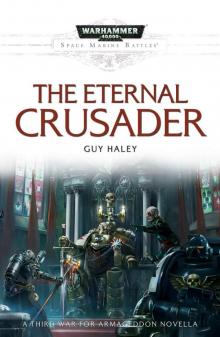 The Eternal Crusader - Guy Haley
The Eternal Crusader - Guy Haley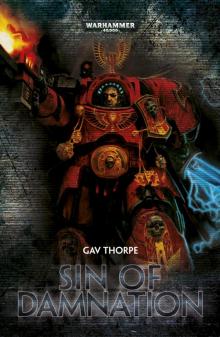 Sin of Damnation - Gav Thorpe
Sin of Damnation - Gav Thorpe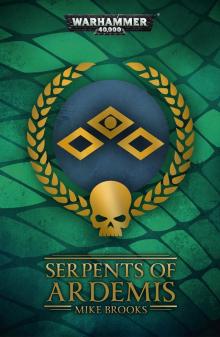 Serpents of Ardemis - Mike Brooks
Serpents of Ardemis - Mike Brooks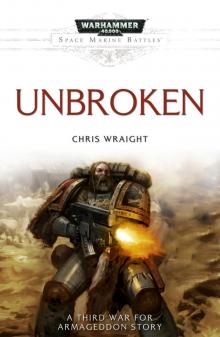 Unbroken - Chris Wraight
Unbroken - Chris Wraight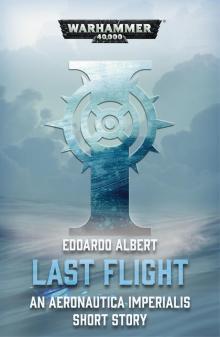 Last Flight - Edoardo Albert
Last Flight - Edoardo Albert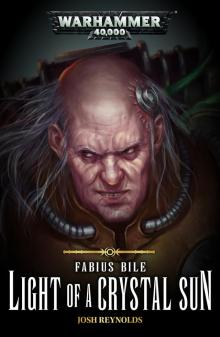 Light of a Crystal Sun - Josh Reynolds
Light of a Crystal Sun - Josh Reynolds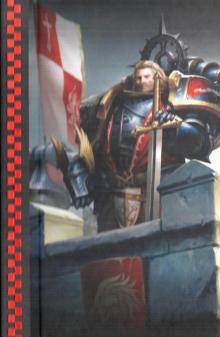 Lion El'Jonson- Lord of the First - David Guymer
Lion El'Jonson- Lord of the First - David Guymer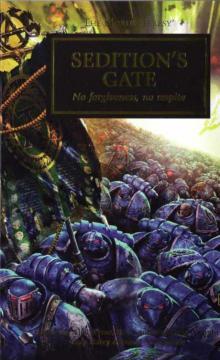 Sedition's Gate - Nick Kyme & Chris Wraight
Sedition's Gate - Nick Kyme & Chris Wraight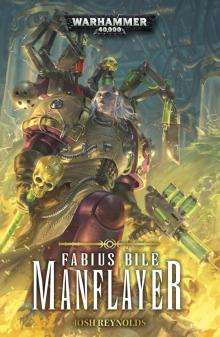 Manflayer - Josh Reynolds
Manflayer - Josh Reynolds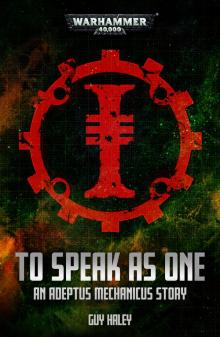 To Speak as One - Guy Haley
To Speak as One - Guy Haley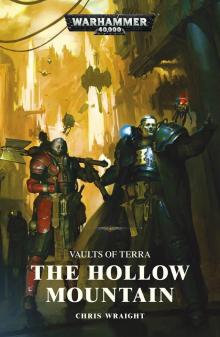 Vaults of Terra- The Hollow Mountain - Chris Wraight
Vaults of Terra- The Hollow Mountain - Chris Wraight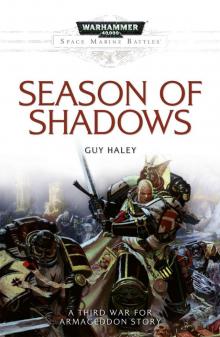 Season of Shadows - Guy Haley
Season of Shadows - Guy Haley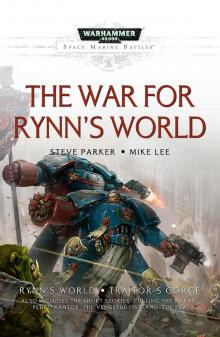 The War for Rynn's World - Steve Parker & Mike Lee
The War for Rynn's World - Steve Parker & Mike Lee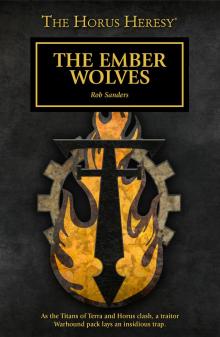 The Ember Wolves - Rob Sanders
The Ember Wolves - Rob Sanders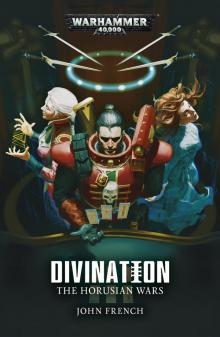 Divination - John French
Divination - John French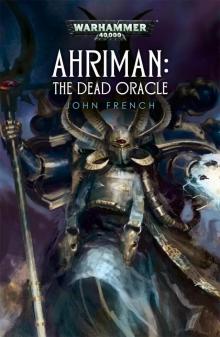 The Dead Oracle - John French
The Dead Oracle - John French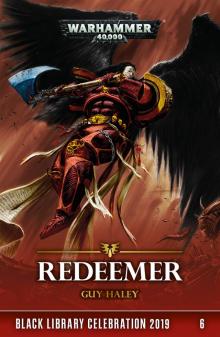 Redeemer - Guy Haley
Redeemer - Guy Haley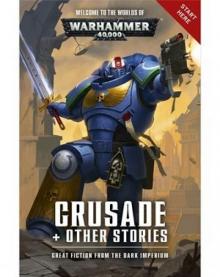 Crusade & Other Stories - Dan Abnett Et Al.
Crusade & Other Stories - Dan Abnett Et Al.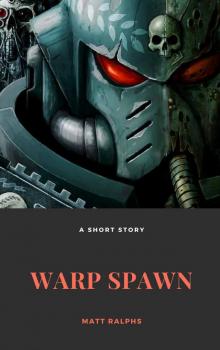 Warp Spawn - Matt Ralphs
Warp Spawn - Matt Ralphs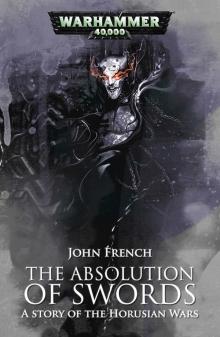 The Absolution of Swords - John French
The Absolution of Swords - John French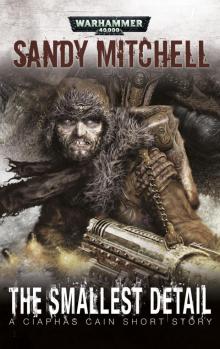 The Smallest Detail - Sandy Mitchell
The Smallest Detail - Sandy Mitchell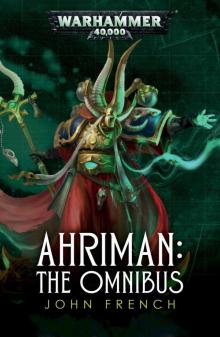 The Omnibus - John French
The Omnibus - John French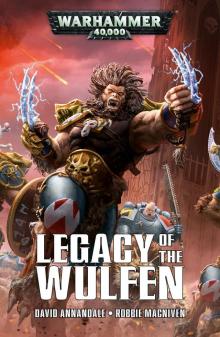 Legacy of the Wulfen - David Annandale & Robbie MacNiven
Legacy of the Wulfen - David Annandale & Robbie MacNiven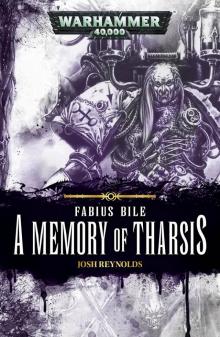 A Memory of Tharsis - Josh Reynolds
A Memory of Tharsis - Josh Reynolds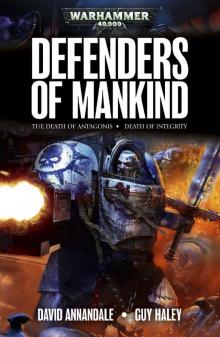 Defenders of Mankind - David Annandale & Guy Haley
Defenders of Mankind - David Annandale & Guy Haley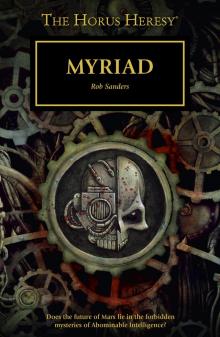 Myriad - Rob Sanders
Myriad - Rob Sanders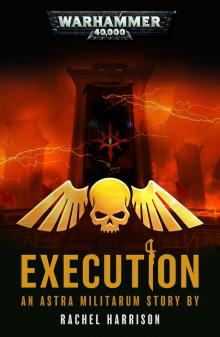 Execution - Rachel Harrison
Execution - Rachel Harrison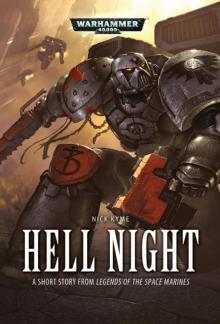 Hell Night - Nick Kyme
Hell Night - Nick Kyme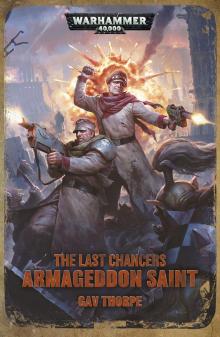 Armageddon Saint - Gav Thorpe
Armageddon Saint - Gav Thorpe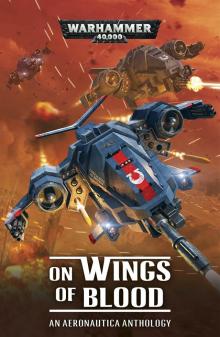 On Wings of Blood
On Wings of Blood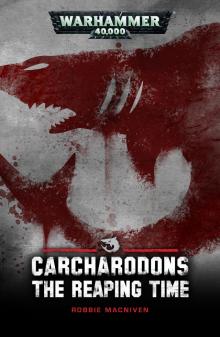 The Reaping Time - Robbie MacNiven
The Reaping Time - Robbie MacNiven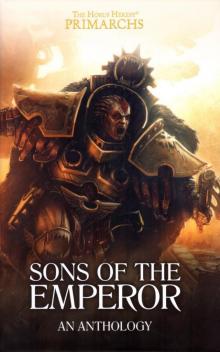 Sons of the Emperor
Sons of the Emperor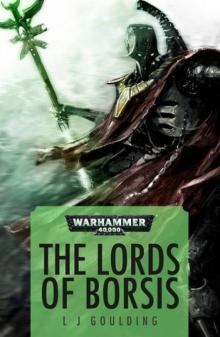 The Lords of Borsis - L J Goulding
The Lords of Borsis - L J Goulding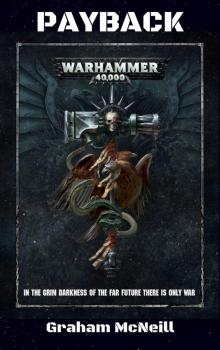 Payback - Graham McNeill
Payback - Graham McNeill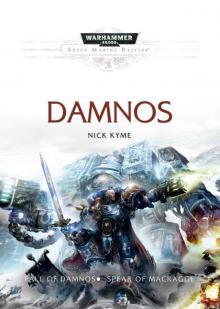 Damnos - Nick Kyme
Damnos - Nick Kyme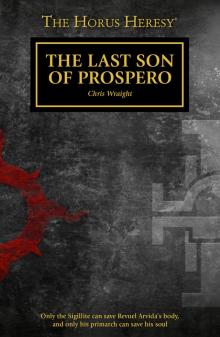 The Last Son of Prospero - Chris Wraight
The Last Son of Prospero - Chris Wraight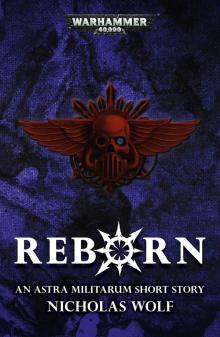 Reborn - Nicholas Wolf
Reborn - Nicholas Wolf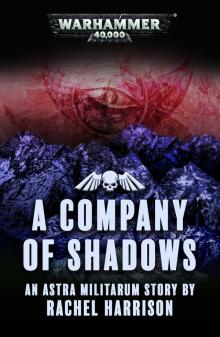 A Company of Shadows - Rachel Harrison
A Company of Shadows - Rachel Harrison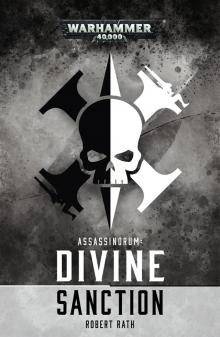 Assassinorum- Divine Sanction - Robert Rath
Assassinorum- Divine Sanction - Robert Rath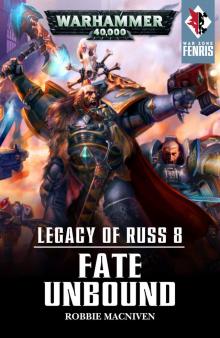 Fate Unbound - Robbie MacNiven
Fate Unbound - Robbie MacNiven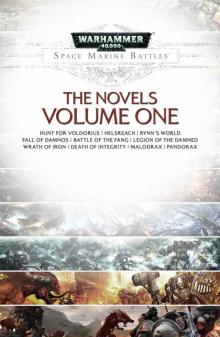 Space Marine Battles - the Novels Volume 1
Space Marine Battles - the Novels Volume 1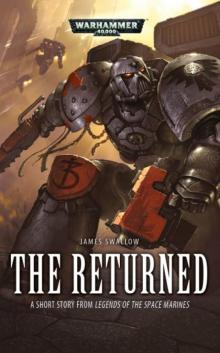 The Returned - James Swallow
The Returned - James Swallow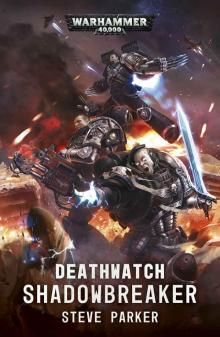 Shadowbreaker - Steve Parker
Shadowbreaker - Steve Parker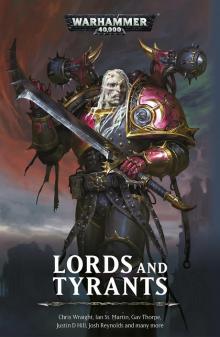 Lords and Tyrants
Lords and Tyrants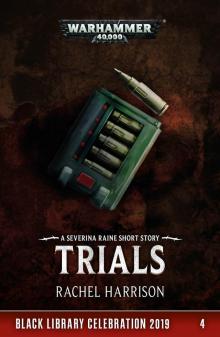 Trials - Rachel Harrison
Trials - Rachel Harrison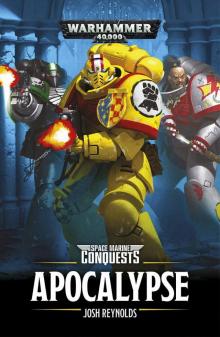 Apocalypse - Josh Reynolds
Apocalypse - Josh Reynolds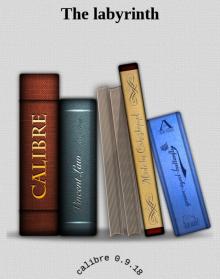 The labyrinth - Richard Ford
The labyrinth - Richard Ford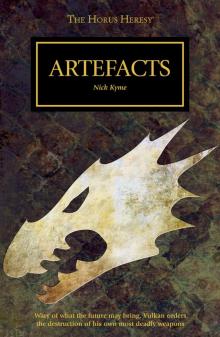 Artefacts - Nick Kyme
Artefacts - Nick Kyme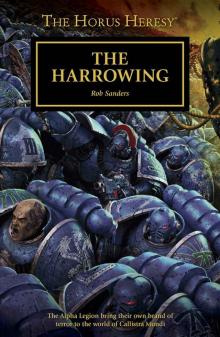 The Harrowing - Rob Sanders
The Harrowing - Rob Sanders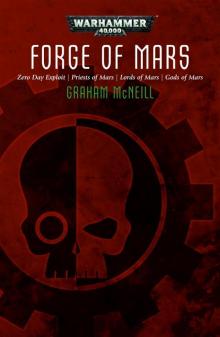 Forge of Mars - Graham McNeill
Forge of Mars - Graham McNeill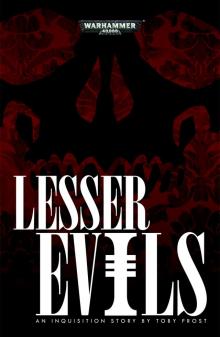 Lesser Evils - Toby Frost
Lesser Evils - Toby Frost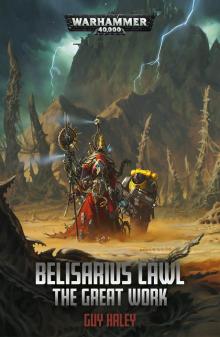 Belisarius Cawl- the Great Work - Guy Haley
Belisarius Cawl- the Great Work - Guy Haley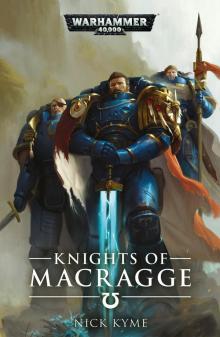 Knights of Macragge - Nick Kyme
Knights of Macragge - Nick Kyme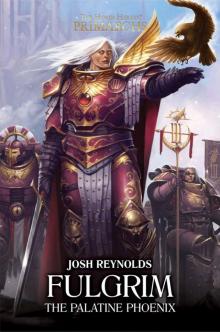 Fulgrim- The Palatine Phoenix - Josh Reynolds
Fulgrim- The Palatine Phoenix - Josh Reynolds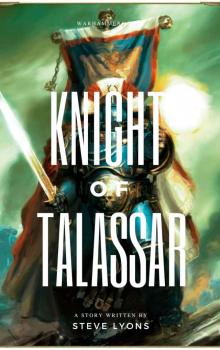 Knight of Talassar - Steve Lyons
Knight of Talassar - Steve Lyons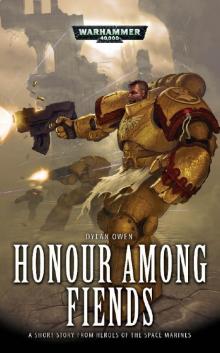 Honour Among Fiends - Dylan Owen
Honour Among Fiends - Dylan Owen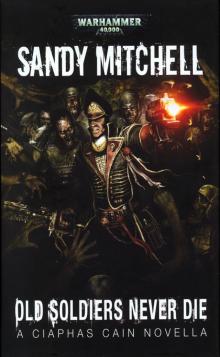 Old Soldiers Never Die - Sandy Mitchell
Old Soldiers Never Die - Sandy Mitchell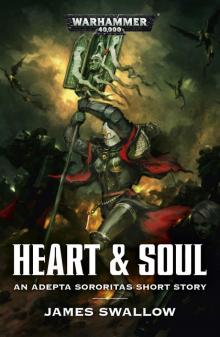 Heart & Soul - James Swallow
Heart & Soul - James Swallow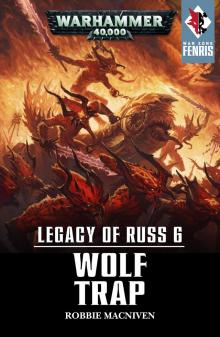 Wolf Trap - Robbie MacNiven
Wolf Trap - Robbie MacNiven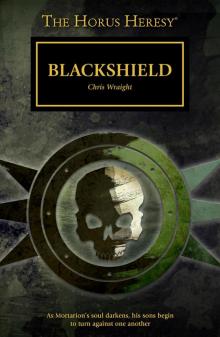 Blackshield - Chris Wraight
Blackshield - Chris Wraight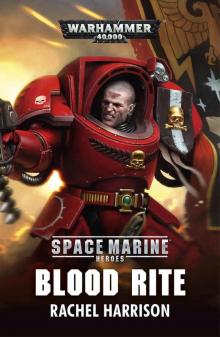 Blood Rite - Rachel Harrison
Blood Rite - Rachel Harrison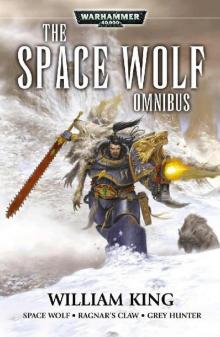 The Space Wolf Omnibus - William King
The Space Wolf Omnibus - William King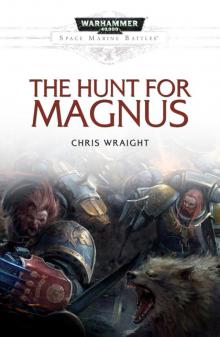 The Hunt for Magnus - Chris Wraight
The Hunt for Magnus - Chris Wraight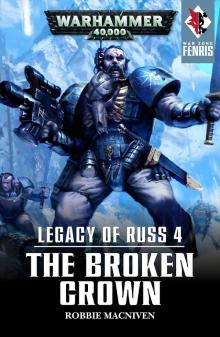 The Broken Crown - Robbie MacNiven
The Broken Crown - Robbie MacNiven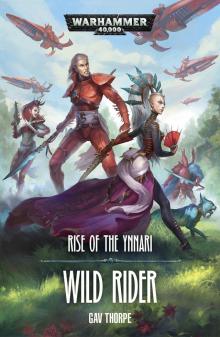 Wild Rider - Gav Thorpe
Wild Rider - Gav Thorpe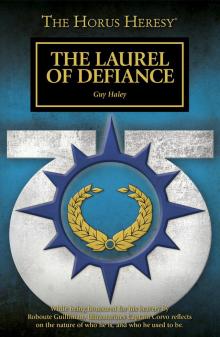 The Laurel of Defiance - Guy Haley
The Laurel of Defiance - Guy Haley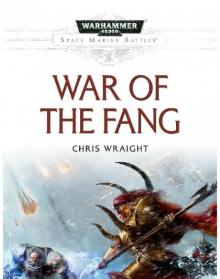 War of the Fang - Chris Wraight
War of the Fang - Chris Wraight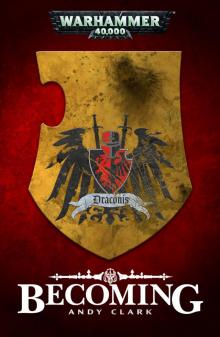 Becoming - Andy Clark
Becoming - Andy Clark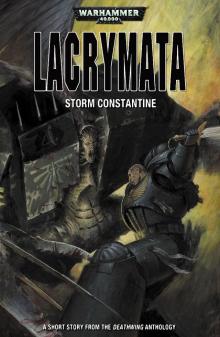 Lacrymata - Storm Constantine
Lacrymata - Storm Constantine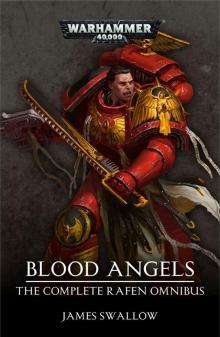 Blood Angels - The Complete Rafen Omnibus - James Swallow
Blood Angels - The Complete Rafen Omnibus - James Swallow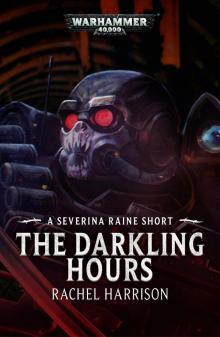 The Darkling Hours - Rachel Harrison
The Darkling Hours - Rachel Harrison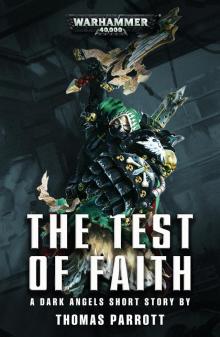 The Test of Faith - Thomas Parrott
The Test of Faith - Thomas Parrott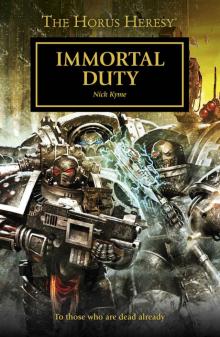 Immortal Duty - Nick Kyme
Immortal Duty - Nick Kyme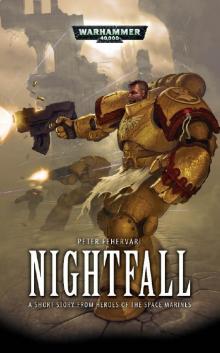 Nightfall - Peter Fehervari
Nightfall - Peter Fehervari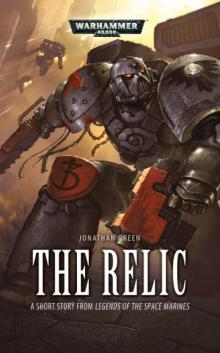 The Relic - Jonathan Green
The Relic - Jonathan Green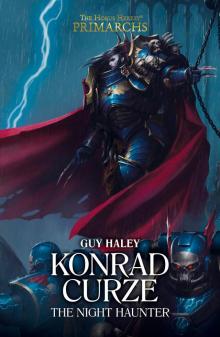 Konrad Curze the Night Haunter - Guy Haley
Konrad Curze the Night Haunter - Guy Haley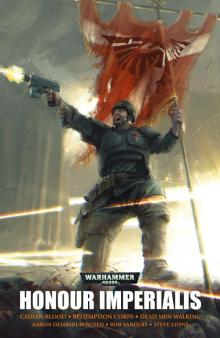 Honour Imperialis - Aaron Dembski-Bowden
Honour Imperialis - Aaron Dembski-Bowden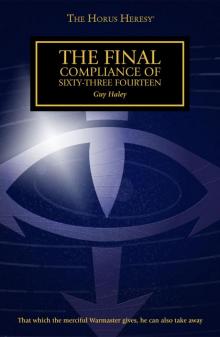 The Final Compliance of Sixty-Three Fourteen - Guy Haley
The Final Compliance of Sixty-Three Fourteen - Guy Haley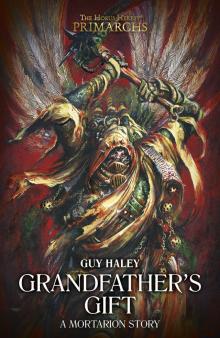 Grandfather’s Gift - Guy Haley
Grandfather’s Gift - Guy Haley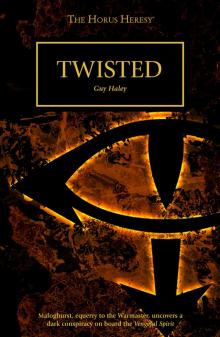 Twisted - Guy Haley
Twisted - Guy Haley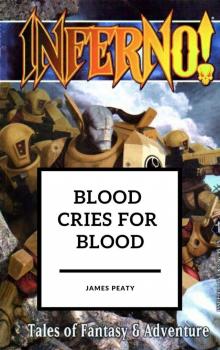 Blood Cries for Blood - James Peaty
Blood Cries for Blood - James Peaty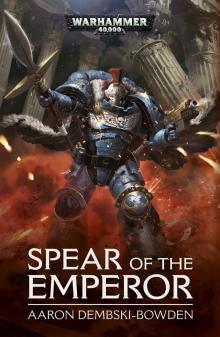 Spear of the Emperor - Aaron Dembski-Bowden
Spear of the Emperor - Aaron Dembski-Bowden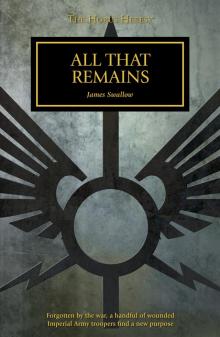 All That Remains - James Swallow
All That Remains - James Swallow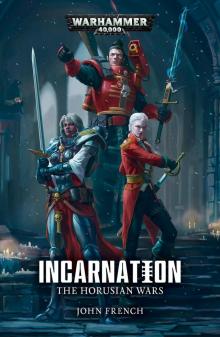 Incarnation - John French
Incarnation - John French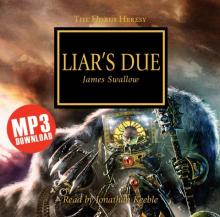 Liar's Due - Ben Swallow
Liar's Due - Ben Swallow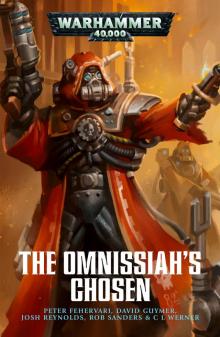 The Omnissiah's Chosen - Peter Fehervari
The Omnissiah's Chosen - Peter Fehervari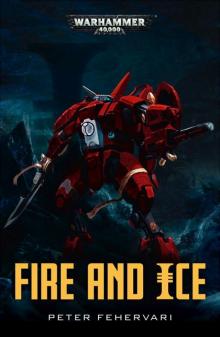 Fire and Ice - Peter Fehervari
Fire and Ice - Peter Fehervari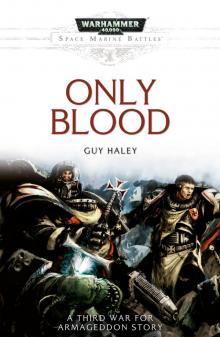 Only Blood - Guy Haley
Only Blood - Guy Haley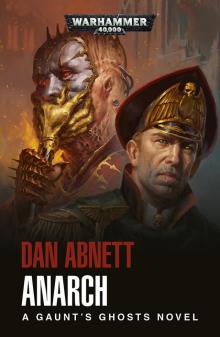 Anarch - Dan Abnett
Anarch - Dan Abnett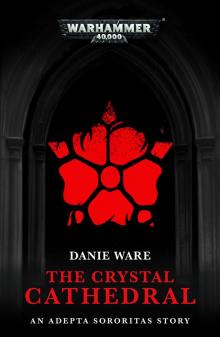 The Crystal Cathedral - Danie Ware
The Crystal Cathedral - Danie Ware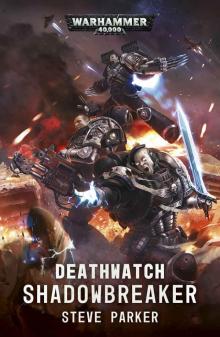 Shadowbreaker
Shadowbreaker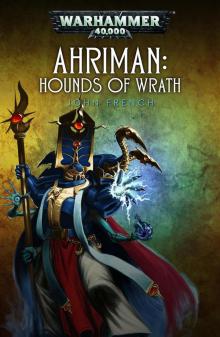 Hounds of Wrath - John French
Hounds of Wrath - John French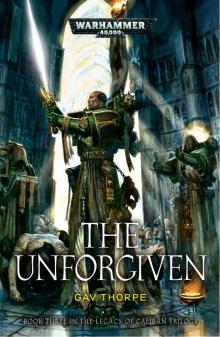 The Unforgiven - Gav Thorpe
The Unforgiven - Gav Thorpe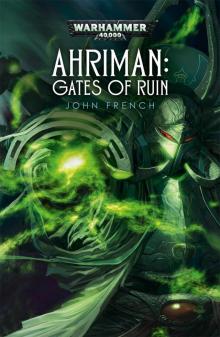 Gates of Ruin - John French
Gates of Ruin - John French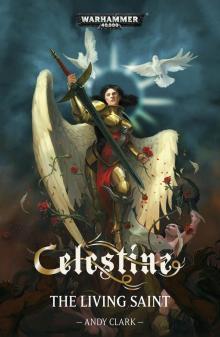 Celestine - Andy Clark
Celestine - Andy Clark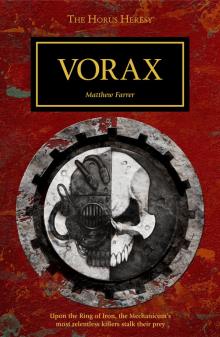 Vorax - Matthew Farrer
Vorax - Matthew Farrer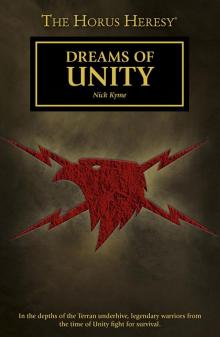 Dreams of Unity - Nick Kyme
Dreams of Unity - Nick Kyme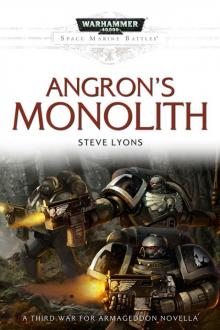 Angron's Monolith - Steve Lyons
Angron's Monolith - Steve Lyons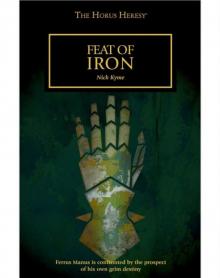 Feat of Iron - Nick Kyme
Feat of Iron - Nick Kyme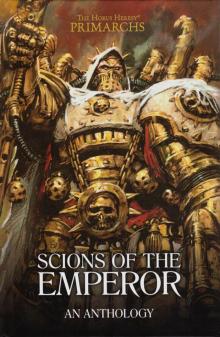 Scions of the Emperor
Scions of the Emperor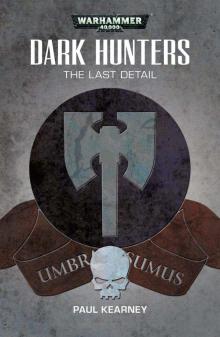 The Last Detail - Paul Kearney
The Last Detail - Paul Kearney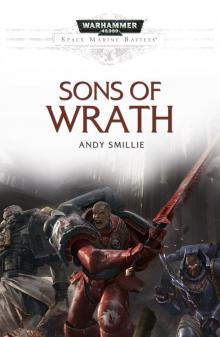 Sons of Wrath - Andy Smillie
Sons of Wrath - Andy Smillie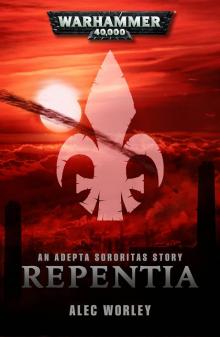 Repentia - Alec Worley
Repentia - Alec Worley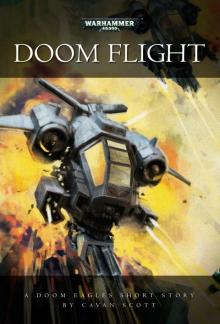 Doom Flight - Cavan Scott
Doom Flight - Cavan Scott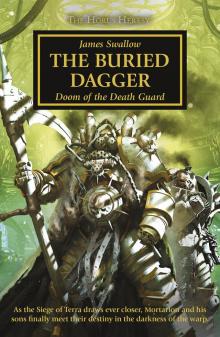 The Buried Dagger - James Swallow
The Buried Dagger - James Swallow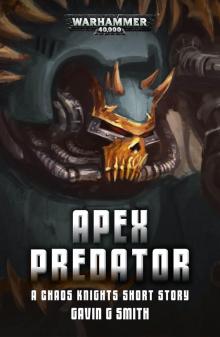 Apex Predator - Gavin G Smith
Apex Predator - Gavin G Smith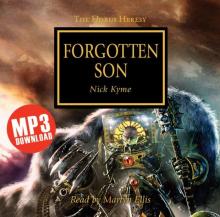 Forgotten Sons - Nick Kyme
Forgotten Sons - Nick Kyme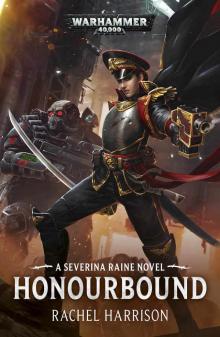 Honourbound - Rachel Harrison
Honourbound - Rachel Harrison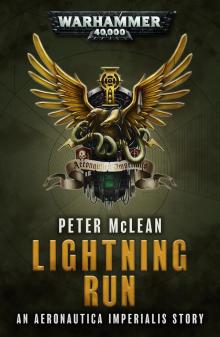 Lightning Run - Peter McLean
Lightning Run - Peter McLean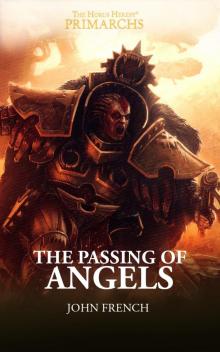 The Passing of Angels - John French
The Passing of Angels - John French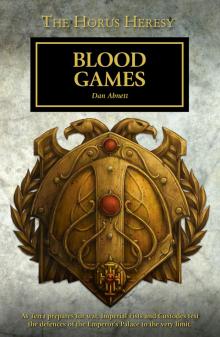 Blood Games - Dan Abnett
Blood Games - Dan Abnett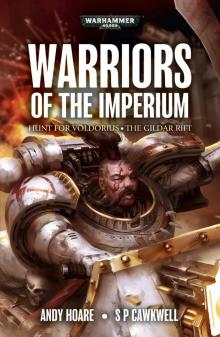 Warriors of the Imperium - Andy Hoare & S P Cawkwell
Warriors of the Imperium - Andy Hoare & S P Cawkwell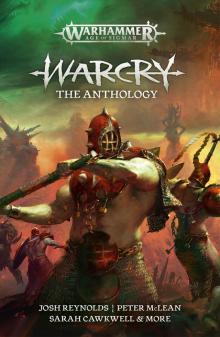 Warcry
Warcry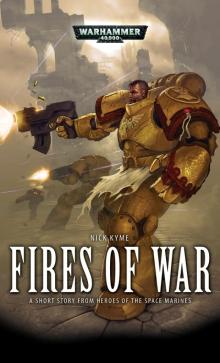 Fires of War - Nick Kyme
Fires of War - Nick Kyme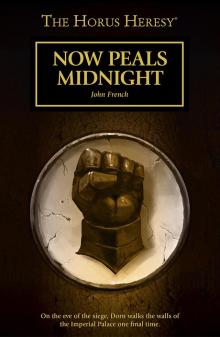 Now Peals Midnight - John French
Now Peals Midnight - John French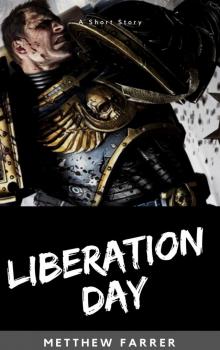 Liberation Day - Matthew Farrer
Liberation Day - Matthew Farrer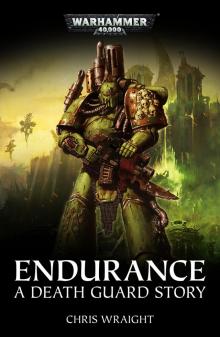 Endurance - Chris Wraight
Endurance - Chris Wraight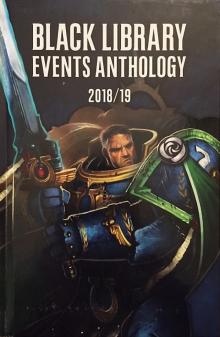 Black Library Events Anthology 2018-19
Black Library Events Anthology 2018-19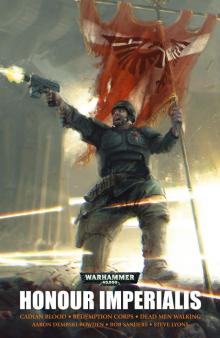 Honour Imperialis - Braden Campbell & Aaron Dembski-Bowden & Chris Dows & Steve Lyons & Rob Sanders
Honour Imperialis - Braden Campbell & Aaron Dembski-Bowden & Chris Dows & Steve Lyons & Rob Sanders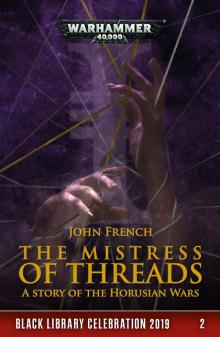 The Mistress of Threads - John French
The Mistress of Threads - John French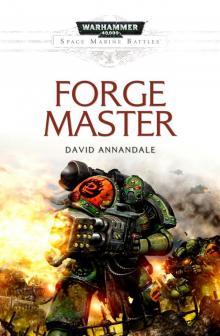 Forge Master - David Annandale
Forge Master - David Annandale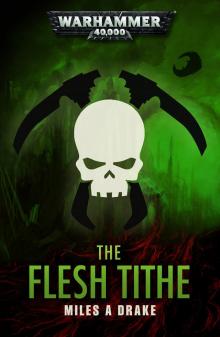 The Flesh Tithe - Miles A Drake
The Flesh Tithe - Miles A Drake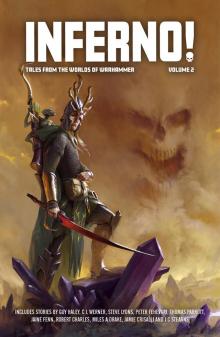 Inferno Volume 2 - Guy Haley
Inferno Volume 2 - Guy Haley Mercy of the Dragon - Nick Kyme
Mercy of the Dragon - Nick Kyme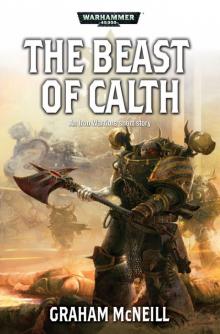 The Beast of Calth - Graham McNeill
The Beast of Calth - Graham McNeill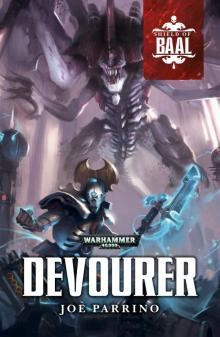 Devourer - Joe Parrino
Devourer - Joe Parrino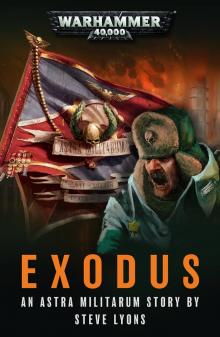 Exodus - Steve Lyons
Exodus - Steve Lyons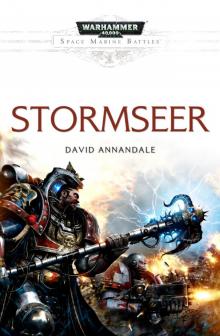 Stormseer - David Annandale
Stormseer - David Annandale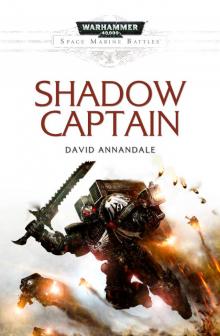 Shadow Captain - David Annandale
Shadow Captain - David Annandale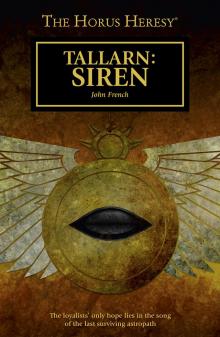 Tallarn- Siren - John French
Tallarn- Siren - John French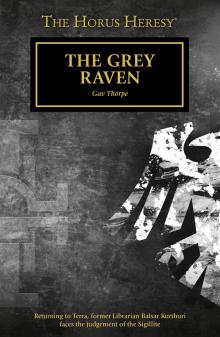 The Grey Raven - Gav Thorpe
The Grey Raven - Gav Thorpe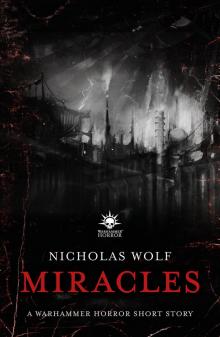 Miracles - Nicholas Wolf
Miracles - Nicholas Wolf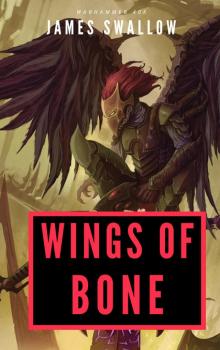 Wings of Bone - James Swallow
Wings of Bone - James Swallow